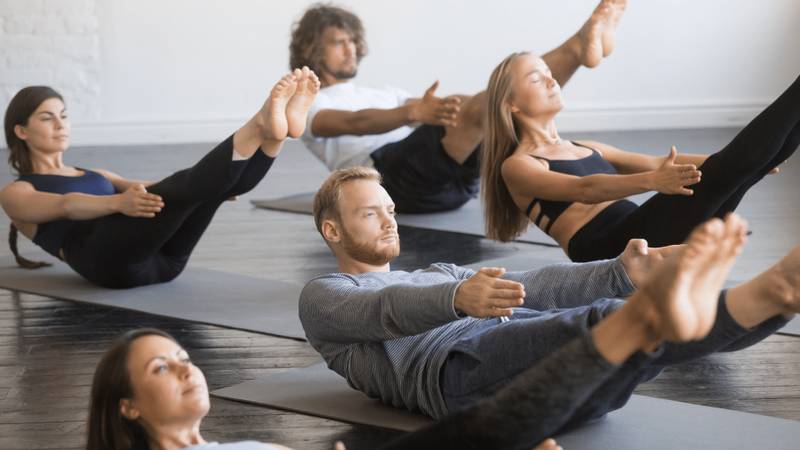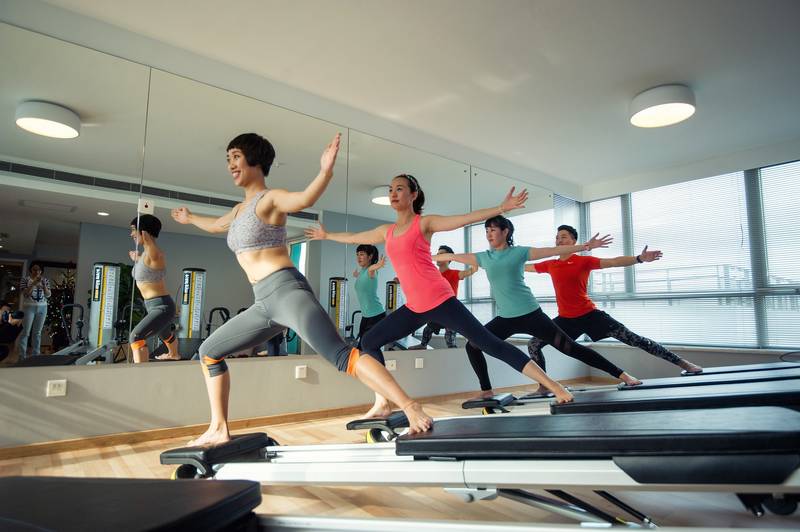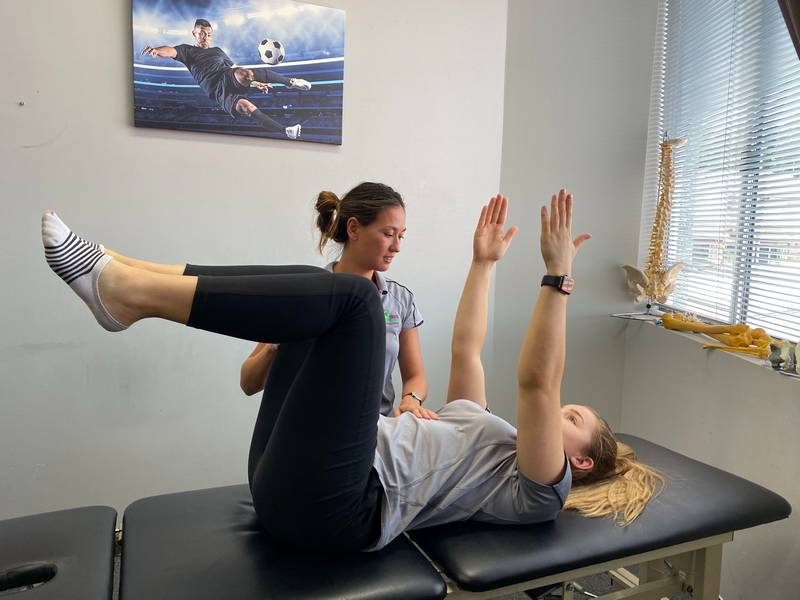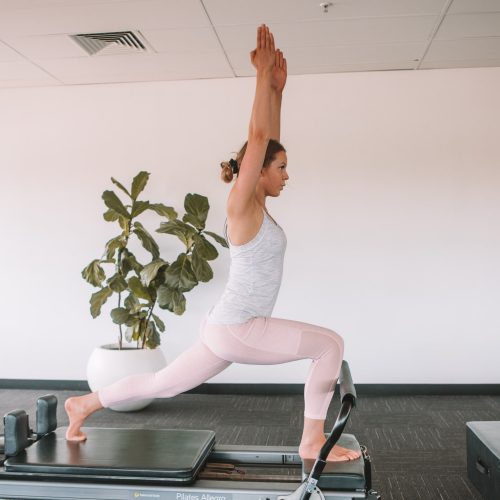The Benefits of Clinical Pilates
THE BENEFITS OF CLINICAL PILATES
Clinical Pilates is a form of physical exercise that focuses on improving posture, core stability, balance, control, strength, flexibility, and breathing. It’s popularity has grown both in the general population but also within the physiotherapy profession as we see some amazing benefits for our clients who undertake this form of rehabilitation. It is low impact, with limited cardio and is suitable for nearly anyone including professional sports people, seniors, pre and post-natal and those undertaking physical rehabilitation as recommended by their doctor.
Pilates was developed in the early 20th Century by Joseph Pilates in Germany. It has since been evolved by physiotherapists as a means of treating pain and dysfunction and rehabilitating a variety of injuries through exercise.
Aim of Pilates
Pilates aims to connect the mind to the body, to activate a deep level of stabilising muscles. It was designed to help people develop a stable musculoskeletal system and overall give our bodies an improved foundation to move with. It not only helps us improve our core stability, strength, muscular endurance and posture, but it also helps to improve the quality of movement or movement control. It aims to teach appropriate muscle activation and muscle recruitment needed to do different tasks. Another benefit is that it’s low impact, meaning it is gentle on the bones and joints. Pilates exercises should always be pain free and should encourage movement, giving individuals a positive experience in favour of movement.


Exercises in Pilates
New age Pilates concepts differ from traditional Pilates methods. Traditional Pilates is revolved around the concept around a “flat back” and “fast paced breathing” during exercise. While this may be beneficial for certain populations or sporting groups, we strongly believe that people need to learn to move freely without extensive bracing and that they are able to breath in a relaxed manner appropriate to the task at hand. This means that exercise is encouraged with neutral spinal alignment. This style of movement is aimed to complement everyday functional tasks and exercise.
The exercises performed in Clinical Pilates aim to increase the stability of the lumbopelvic complex – that is the lumbar spine and pelvis, through training our “core”, which are our deep stabilisation muscles consisting of our transversus abdominis, multifidus, diaphragm and the pelvic floor, whilst also training movement patterns and postural muscles.
The exercises we use incorporate on the whole kinetic chain, meaning how one muscle group or area of the body affects and impacts other areas of the body. Looking at the kinetic chain is important in both physiotherapy assessment and exercise prescription, to ensure rehabilitation can be translated into functional improvements. Incorporating the whole kinetic chain by frequent position changes and recruiting multiple different muscle groups at once, ensures that Pilates exercise classes are associated with improvements in function.


Types of Pilates that we offer
At Total Body Physio we have varying types of Pilates Rehabilitation that our physiotherapists run. We have One-on-One Clinical Pilates sessions, small group classes, and sessions as well as classes that involve different equipment to promote muscle activation or create increased resistance.
Matwork Pilates classes are usually what most people are familiar with. These small group classes are based on slow and mindful exercises that require having control over your breathing. It is performed on the floor using an exercise or yoga mat and employs controlled breathing during body weight resisted movement to build core strength. Pilates classes incorporate a variety of exercises in multiple different positions, including standing, supine, 4-point kneeling, side-lying, and prone. Each Pilates session or class involves moving between different positions to target specific muscle groups or working with groups of muscles in more functional positions. Small equipment such as pilates rings, small balls, dumbbells, foam rollers and therabands can also be incorporated into the repertoire. Due to the nature and small group size of our classes, varying the level of difficulty is also easily achieved.
Recently there was a reform of Australian Private Health Insurance system which changed the ability to get health fund rebates for some natural therapies including generically run Pilates. However, the reforms still recognise the benefits of small group exercise classes providing that they are run by physiotherapists and are clinically justified via assessment and re-assessment. Therefore, our physio run small group classes can attract health fund rebates for those covered by private health insurance. Rebates are available for initial assessments with a physiotherapist, as well as group exercise classes that incorporate exercises specific to the individual. The benefits of these group exercise classes, is that following the initial assessment, programs are developed specific to the individual and can be adjusted as required throughout the classes. In addition, our physiotherapists are professionally trained to deal with injuries, illness, and disability through exercise prescription, education and advice, and therefore our staff ensure that our Pilates classes are run safely, thus preventable injuries are minimised.
Alternatively some patients either prefer or are more suited towards private One on one Clinical Pilates sessions. A one on one session is a great way to introduce patients to Pilates especially if they haven’t trained before as they get the physio’s undivided attention. Pilates is focused on posture and alignment and often it may only be a small adjustment in movement between doing an exercise right (and therefore effectively) or incorrectly and risking injury, so correct technique is everything.
In clinic we often create pathways for patients recovering from injury. As a patient progresses through their initial physio treatment they are often introduced to Pilates style exercises as well as gym based exercises as a part of their rehabilitation program. For those that need to develop further strength and endurance and suit a Pilates based approach, or for those that would like to continue with Pilates to help prevent further issues, we will internally refer to Physio team members that have specific Clinical Pilates training for an assessment. We also often receive referrals from local doctors and gyms as well as the general public who simply want to start a Pilates program.


Who would benefit from Clinical Pilates Training?
Typically we find that many of our Pilates clients are recovering from back, neck, shoulder and hip pathology. It often suits a pre & post-natal population and a subgroup of seniors that just enjoy the low impact but effective training that Pilates offers. Obviously Clinical Pilates is not limited to these subgroups and the benefits of Pilates exceeds a clinical population. Meaning it is not only used as end stage rehab for patients in the clinic but can also play a role in injury prevention and maintaining health and wellbeing for the general population.
As mentioned our Clinical Pilates sessions and small group classes are run by some of our physiotherapists who have had specific training in this area. Our varying sessions can be tailored to a wide variety of general and clinical populations. The level of difficulty in exercises can range from beginner, intermediate, to advanced, and the physiotherapist is able to adjust exercises based on each individual’s ability and functional needs. As mentioned in our clinic this may take the form of a one-on-one pilates consultation, a small group class or the ability to use varying forms of equipment such as a reformer under the supervision of our physio’s. Often people are too eager to use these pieces of equipment too soon and the benefit of having a physio run the pilates program is that progression is based off objective measures, so with supervision we can help them develop the appropriate control and strength first so they can then progress to the use of this equipment safely.
Pilates Assessment
It is important to conduct a thorough physical assessment and imaging if indicated to exclude other pathologies that may present similar to spondylosis as differential diagnosis can alter treatment and also affect a patient’s prognosis.
For anyone wishing to start Pilates style training in our clinic they need to undergo a Pre-Pilates Assessment, which is a comprehensive initial consultation completed by one of our Pilates Trained Physiotherapists. An initial assessment and regular review assessments are requirements for anyone hoping to get Private Health Insurance rebates from doing physio run exercise classes, but for us these assessments allow us to truly understand a patient’s current health status as well as their level of ability, function, biomechanics and their goals.
The assessment involves looking at overall posture, range of motion, and analysing biomechanics and kinetic chain movement patterns and quality of movement. Core stability is assessed and The 5 key Elements of Pilates are taught during this consult. The 5 key elements form the vital building blocks to optimal posture and efficient movement needed for Pilates training. In this assessment our physio’s also teach some of the basic key movements/exercises needed if class participation was wanted. Following a Pre-Pilates assessment, our physiotherapists can identify each patient’s limitations and also any key areas that they need to target during further One on One Pilates sessions or during Clinical Pilates classes.
In our Pre-Pilates class assessment we also include key objective measures through specific testing and the use of dynamometers and force plates. The results collected from this assessment can be compared on re-assessment after part-taking in the group exercise class, to show the improvements in strength and muscle function. In addition to this, the physiotherapists will create clinical documents to monitor changes for each individual, ensuring each person is continuously attended to and progressing well in the program.


ARE YOU INTERESTED IN CLINICAL PILATES?
BOOK A COMPREHENSIVE ASSESSMENT WITH ONE OF OUR AMAZING CLINICAL PILATES PHYSIO’S! IN THE INITIAL ASSESSMENT/CONSULTATION WE WILL:
- Assess your movement and muscle activation patterns
- Teach you how to turn on your core muscles
- Identify any deficits that we can improve upon with Clinical Pilates training
- Set personalised goals
- Teach you “The 5 key Elements of Pilates” which are vital building blocks to optimal posture and efficient movement needed for Pilates training
- Start your Pilates Journey immediately by tailoring exercises to your level of ability/difficulty


Total Body Physio is dedicated to offering physio run clinical pilates to residents in Five Dock, Summer Hill, and the surrounding suburbs, including Rhodes, Rosebery, Rozelle, Strathfield, Wentworth Point, Alexandria, and Arncliffe.
Schedule your appointment online today.